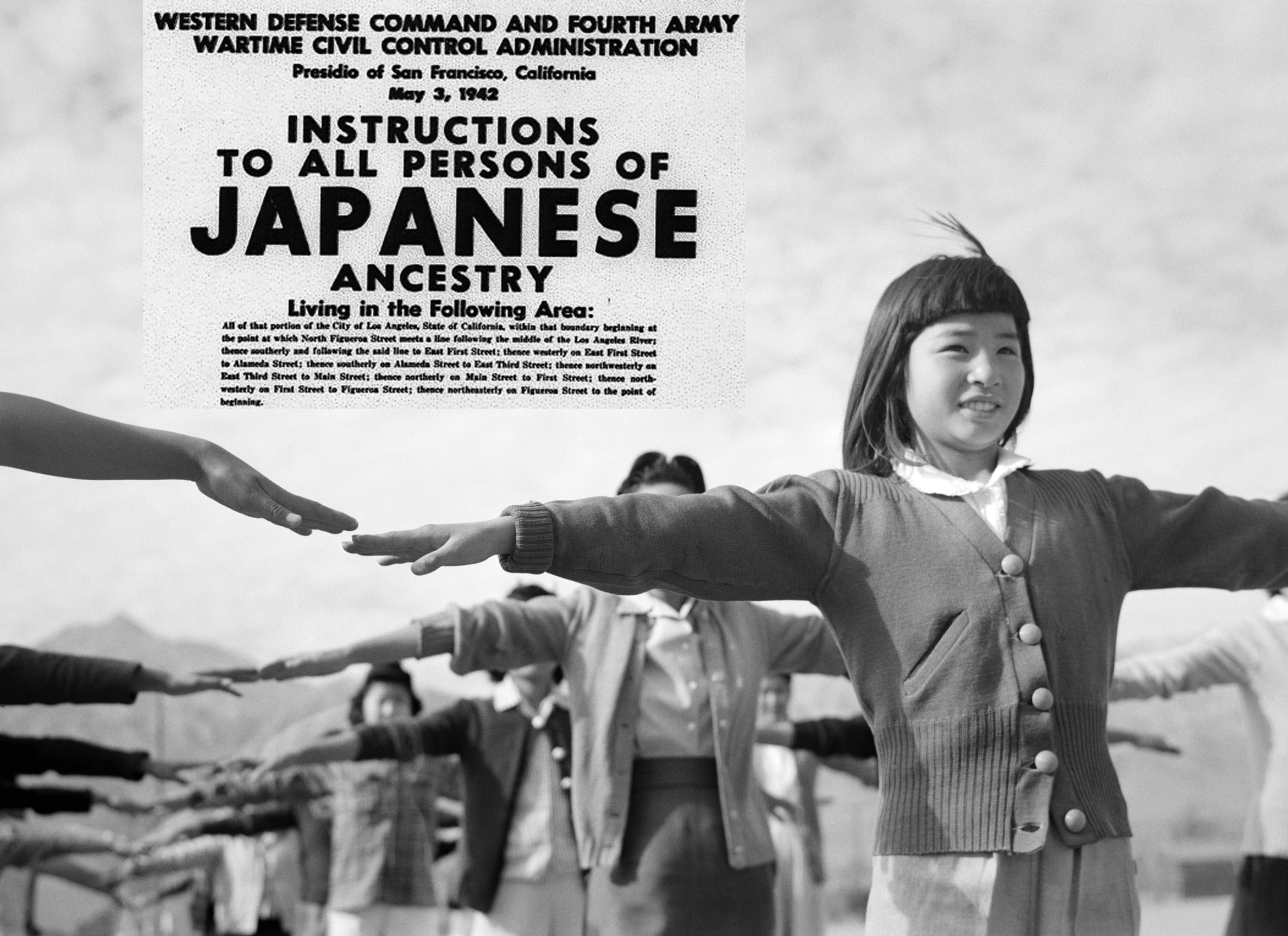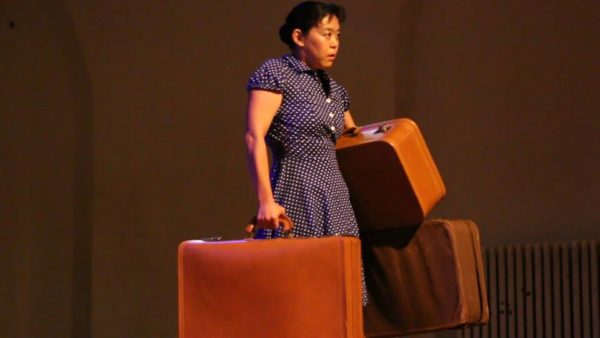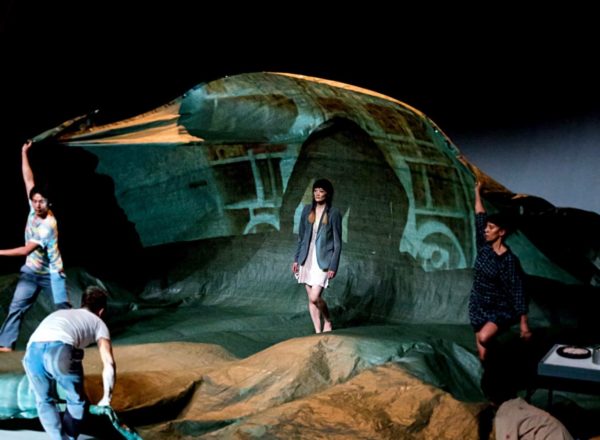
- This event has passed.
Free Program: Remembering Executive Order 9066 and America’s WWII Era Concentration Camps
February 19日, 2018 @ 7:30 pm - 8:30 pm UTC+0
Free
2月19日(月) 午後7時30分より、CRS主催による「 Remembering Executive Order 9066 and American’s WWII Era Concentration Camps -第二次世界大戦時の日系人強制収容キャンプの記憶-」と題した無料イベントを開催いたします。
第二次世界大戦時の1942年2月19日にアメリカ第26代大統領フランクリン・ルーズベルトが署名・発令した「大統領令(Executive Order 9066)」により、特定地域を軍管理地域に指定する権限が陸軍長官へ与えられ、結果として「大統領令」は日系人強制収容キャンプへ道を開くことになりました。それから76年の年を経て、語り継がれるその時の記憶。このイベントでは日系人強制収容キャンプを題材に作られたダンス作品を池田薫氏率いるMoustacheCat Dance、写真展をNY Day of Remembrance Committeeメンバーである本田スタン氏、ショートビデオ上映を中馬ヨシコ氏率いるThe school of Hard Knocks [SOHK]により行います。 他にもスピーカーを追加予定。あまり知られてこなかった日系人とアメリカの歴史を、ぜひ今一度胸に刻みましょう。
2018 is also the 30th anniversary of the signing of the Civil Liberties Act of 1988, the legislation that provided a formal apology from the US government and monetary reparations to survivors of the forced evacuation and mass incarceration of Japanese Americans during World War II.
MoustacheCat Dance will present a short excerpt of its work-in-progress “Freedom isn’t Free,” an evening length work that explores the biased reactions that resulted in the interning of tens of thousands of American residents and citizens during World War II. The work also reflects on current biased reactions to people of various races, religions, and ethnicities in the United States. The excerpt that we will see expresses Japanese Americans’ struggle to resist anti-Japanese American agitation and laws that called for their imprisonment.
Stan Honda will present images from a new book, Moving Walls: The Barracks of America’s Concentration Camps (available for purchase and signing) that was done in collaboration with author Sharon Yamato and will preview the New York Day of Remembrance Committees’ Feb. 24 program.
Yoshiko Chuma and The school of Hard Knocks will show about 15 minutes of video consisting of several sequences created by Megumi Eda using footage from her time with SOHK and additional recent documentation of SOHK work in Las Vegas related to the National Atomic Testing Musuem. Following tonight’s screening, Eda will share her experiences making this work.
MoustacheCat Dance has been working on “Freedom isn’t Free” since 2014. The work originated as a short solo dedicated to Japanese Americans who were sent to the camps. Currently, the company is in the process expanded it into an evening-length group piece to inspire audiences, through dance, to think about how we can make this world a better place together. The full work will premiere May 10 – 12, 2018 at University Settlement in NYC.

Yoshiko Chuma and the School of Hard Knocks in NYC has continued seeking and creating visible and invisible performances for more than 40 years. You may check out their history on The School of Hard Knocks web site. Dancer/choreographer/filmmaker Megumi Eda, a new core member of The School of Hard Knocks since 2014, has been filming much of the company’s work and editing the footage into unique creations.

STAN HONDA is a New York-based photographer and worked as a photojournalist for 34 years, most recently for Agence France-Presse (AFP), the French news agency. He covered a wide range of topics including news events, politics, economics, sports and human interest stories. Photographing the space shuttle program for five years was a highlight of his time at AFP since he has been following the space program since childhood. Personal projects include documenting the U.S. concentration camps where Japanese Americans were incarcerated during World War II, his parents and relatives among those held. Photos of the sites and survivors can be seen in the Internment Camp section of his web site. A continuing project involves night sky landscapes, combining his long time interest in astronomy and photography. He has worked as an artist-in-residence at five national parks: the Grand Canyon, Petrified Forest, Wupatki in Arizona, Rocky Mountain in Colorado and Chaco Culture National Historical Park in New Mexico, photographing the sky and the landscape with the aim of helping preserve our view of the night sky. Photography of Chaco Culture and Wuptaki helped both parks being designated as International Dark Sky Parks. He manages to photograph celestial events even from New York City. http://www.stanhonda.com
KAORU IKEDA, dancer, choreographer and founder of MoustacheCat Dance, is originally from Osaka, Japan where she had Classic Ballet Training at Homura Tomoi Ballet Company School and became one of the selected student members to perform in the Japanese premier of “La Bayadçre” and in other productions with the ballet company. After she had a long break from dance, during which time she played percussion and won a gold prize in percussion ensemble, she decided to go back and dedicate her life to dance. Ms. Ikeda graduated from Nihon University with a BA in Dance. While living in Tokyo, Japan, she had the honor to work with important Japanese dance choreographers. She earned an MFA in Dance at New York University, Tisch School of the Arts, where her major performances included Bill T. Jones/Arnie Zane’s “Continuous Replay.” Ms. Ikeda has trained, performed, and choreographed work that has been described as “perfectly realized dance” (offoffoffdance, 2005) and “moving poetry” (Eyes on Arts, 2012), and she has taught dance ranging from classical ballet to Butoh to modern dance. Her work has taken her to the US, Japan, South Korea, and Mexico. As a dancer, Ms. Ikeda has worked with LIFEDANCE/Gloria McLean and Dancers, Jeramy Zimeramen/CatScratch Theatre, Laura Shapiro/quicksilverdance, Aviva Geismar/Drastic Action, and Natsu Nakajima/Mutekisya. In 2015, Ms. Ikeda founded a dance company “MoustacheCat Dance” to present her voice and fight against prejudice through dance.
MOUSTACHECAT DANCE was founded by Kaoru Ikeda in 2015 to fight against prejudice through dance. In early 2015, the 70th anniversary of the end of World War Ⅱ, Ms. Ikeda started working on a project based on the history of Japanese American Internment Camps during the war, to dedicate to Japanese Americans who were sent to the camps. However, the more she researched, she faced the reality that there are so many types of prejudice all over the word. It could come from one’s skin color, religion, culture, and belief. There is a tendency to make a judgment about people based on difference without knowing anything about the other. This generates prejudice. In order not to make the same mistakes over and over, Ms. Ikeda realized that we must learn from history and respect each other so that we can make a better future. MoustacheCat Dance has a very wide range of projects. It is inspired by local and global situation and historical events that demonstrate immorality and injustice. MoustacheCat Dance wants to invite the audience to think about the kind of world we are living in, and how, together, we can make this world a better place. From Ms. Ikeda’s experiences dancing internationally, she has concluded that dance can cross the barrier of cultures. MoustacheCat Dance’s projects present as her voice to reach people beyond any differences, to cross the borders and fight against prejudice through dance. http://moustachecatdance.org
YOSHIKO CHUMA (conceptual artist/choreographer/artistic director of The School of Hard Knocks) has been a firebrand of New York’s downtown dance scene since arriving in 1978. She has created more than 60 full-length company works, commissions and site-specific events for venues in 35 countries, constantly challenging the notion of performing for both audience and participant. Her work has been presented in such diverse venues as Joyce Theater, the Eiffel Tower, Newcastle Swing Bridge, City Center, Lincoln Center, the former National Theater of Sarajevo, the perimeter of the Hong Kong harbor, and an ancient ruin in Macedonia, and in Jordan, among others. She has received fellowships and awards for choreography and career work from John Simon Guggenheim Foundation, NEA, New York Foundation for Artists, Japan Foundation, Meet the Composer Choreographer/Composer Commission and Philip Morris New Works. Chuma has led workshops and master classes and been commissioned to create new work in East and West Europe, Asia, Russia and the U.S. She received a 1984 BESSIE award for choreography and four more Bessies were awarded to her productions in 1992 and 1998. In 2007 she received a Bessie for Sustained Achievement. Chuma was Artistic Director of the Daghdha Dance Company in Limerick, Ireland from 2000-03 and continues to work in Ireland as a guest teacher/choreographer in the Dance MA program of the Irish World Academy of Music and Dance. http://www.yoshikochuma.org
MEGUMI EDA born in Nagano, Japan, Megumi had her professional debut with the Matsuyama Ballet Company at age 14 in Tokyo where she appeared in many of the ballet classics in repertoire. She appeared successfully in the Prix de Lausanne Competition in 1991 and was invited to join the Hamburg Ballet School, where soon after she joined the company working with Mats Ek and choreographer/director John Neumeier. She spent 15 years in Europe (Dutch National Ballet in Amsterdam, Rambert Dance Company in London etc..), worked and toured all over the world constantly with these companies and participated in the creation of 30-40 new works with various artist/ collaborators including Christopher Bruce, Jiri Kylian, Lindsey Kemp, William Forsythe, Hans van Manen, David Dawson, and Redha. A decade ago she moved to NY to joined Armitage Gone! Dance. In 2004 she received a Bessie Award for her performance in the company’s inaugural piece and has continued a close collaboration with Karole Armitage to this day. Now, as a freelance artist, she has begun to incorporate other art forms including sculpture, video and graphics into her installations and performances. She has been working/collaborating with Yoshiko Chuma since 2014 as a Dancer and filmmaker. www.megumieda.com
THE SCHOOL OF HARD KNOCKS (Founded in 1984) is an award-winning collaborative effort of choreographers, dancers, actors, singers, musicians, designers, and visual artists working under the artistic direction of Yoshiko Chuma. The School of Hard Knocks, which takes its name from the American idiom meaning to learn things the hard way, was the title of the company’s first production, a collaboration between Yoshiko Chuma, Jacob Burckhardt (filmmaker) and Alvin Curran (musician) presented at the 1980 Venice Biennale. Over the course of the company’s history, more than 1,000 people have performed under Chuma’s direction in situations ranging from theatrical dance concerts to street performances, parades, large-scale spectacles and intimate Living Room Projects, Chuma’s signature program which brings post modern music and dance performance to homes, businesses and community centers. Living Room Projects have been performed in homes in Budapest, a car show room in Nagoya, and gardens in the East Village of New York City. Since its foundation in 1984, the company has created and performed original works in the U.S., Europe and in Asia and has welcomed over 1,000 performers to participate in theatrical dance concerts, street performances, parades, and large-scale spectacles.
The School of Hard Knocks has created and performed original works in their annual New York season, and on tour in the United States, Asia, and Europe, with a particular focus on Eastern European countries, including Slovakia, Bulgaria, Romania, Czech Republic, Poland, Hungary, the Baltic Republics, and Bosnia. In the last five years, The School of Hard Knocks has made a commitment to offering young dancers from Japan international exposure and opportunity.
More on the Internment from wikipedia.com:
As a result of the Order, “approximately 120,000 men, women, and children of Japanese ancestry were evicted from the West Coast of the United States and held in American concentration camps and other confinement sites across the country.”
“In early 1941, President Roosevelt secretly commissioned a study to assess the possibility that Japanese Americans would pose a threat to U.S. security. The report, submitted exactly one month before Pearl Harbor was bombed, found that, “There will be no armed uprising of Japanese” in the United States. “For the most part,” the Munson Report said, “the local Japanese are loyal to the United States or, at worst, hope that by remaining quiet they can avoid concentration camps or irresponsible mobs.” A second investigation started in 1940, written by Naval Intelligence officer Kenneth Ringle and submitted in January 1942, likewise found no evidence of fifth column activity and urged against mass incarceration. Both were ignored.
“Over two-thirds of the people of Japanese ethnicity were incarcerated—almost 70,000—were American citizens. Many of the rest had lived in the country between 20 and 40 years. Most Japanese Americans, particularly the first generation born in the United States (the nisei), considered themselves loyal to the United States of America. No Japanese American citizen or Japanese national residing in the United States was ever found guilty of sabotage or espionage.“